Callum Graham is Programme Co-ordinator for Daisy (Disability Arts in Surrey), an umbrella organisation which promotes and celebrates the works of disabled artists and disability arts organisations in Surrey. The organisation strives to develop the south east as the lead region in the UK for disability and deaf cultural activity. Daisy works with its member organisations to share skills, resources and grow together. Supported by Arts Fundraising & Philanthropy’s Funding Network Projects 2017.
In October 2016 Daisy (Disability Arts in Surrey) members met to discuss priorities for 2017. Fundraising skills was highlighted as a key area for learning and development. In response to this we sought out an organisation which could both support the fundraising for this event, and also provide support in terms of suggesting an appropriate workshop leader. Arts Fundraising & Philanthropy suited this brief perfectly.
On Thursday 27th September 21 delegates from Daisy and other disability arts organisations based in Surrey met at The Grange Centre in Bookham. The day was facilitated by Joanna Ridout, veteran fundraising expert, with experience of working with disability arts organisations such as Magpie Dance and Oily Cart as well as the Independent Theatre Council, Blind Summit and Arts Council Catalyst consortia.
The day started with introductions to gather an understanding of how much fundraising experience was in the room. A lot of the participants identified as on the ground managers, with limited experience of fundraising, very often without any formal training in this area. The first activity was to each write a short message on a piece of paper, expressing a fundraising fear. These were then put into a jar, re-distributed and read out by the group. A lot of these included phrases such as 'I don't know where to start' and 'fear of not getting the money and therefore of wasting my time'. The intention was to weave these anxieties into the day and resolve them.
From this point forward Joanna delivered a series of activities that addressed the key areas:
- What is fundraising and what am I selling?
- Building an effective case for support
- Making an approach – preparation and practice
- Nurturing relationships and the fundraising habit
Each section was well delivered, with clear explanations. The process was informative, with hands on tasks and plenty of opportunities to ask questions. Working with different partners throughout the day was a good opportunity to share knowledge and dispel anxieties.
Joanna neatly outlined the good habits of fundraising, dispelling some myths and using useful analogies to make the process relatable for the less initiated. The section on building a case for support package was a crucial area that many organisations had not previous thought about. It was great that the participants could use there own organisations as templates when completing activities in this section, allowing them to do some ground work and ask questions before taking a skeleton structure away to to complete later.
During the making an approach section it was particularly useful to visualise being in both an applicant and a funders shoes. Many participants commented that this changed their way of approaching applications and funders. At the end of the session we returned to the jar of fears. When the initial fears were read out again, most of them had been resolved. Joanna then asked each participant to set themselves a fundraising task, and write in their diary which day they were going to do it. This was a great way of taking the learning out of the room and embedding better fundraising practice going forward.
Key areas of learning were:
- Make fundraising a habit – you wont be successful at every application so you need to be diligent and continually apply for funding
- Consider fundraising as a relationship – What do you both need to make the partnership a success? What does the fundraiser want to achieve by offering the money?
- Build relationships with funders – keep a open line of communication with funders. If the partnership is a success, there may be other opportunities to work together in the future
The feedback from participants on the day was very positive. In feedback forms participants stated:
'Pace was just right. very engaging – Lots of group work to keep energy and learning constant'.
'I gained a great deal from the workshop'.
'Many thanks. A worthwhile days work'.
'well led. The practical elements of the day meant you faced your fears'.
'Very enjoyable, learnt a lot today. Thank you'
Out of the 19 feedback forms collected, 7 participants highlighted that now they had learnt the basics they would like to come to a second, more advanced session.
Daisy would like to say thank you to The Grange for providing such a welcoming and inspiring atmosphere, to Joanna for delivering an excellent workshop and to Arts Fundraising and Philanthropy, who provided the financial and advisory support that made the day possible.






